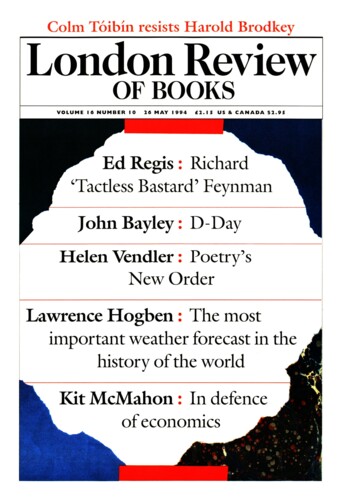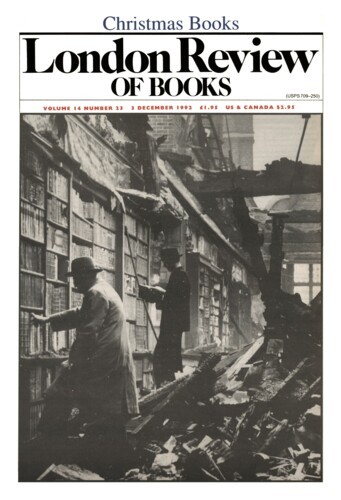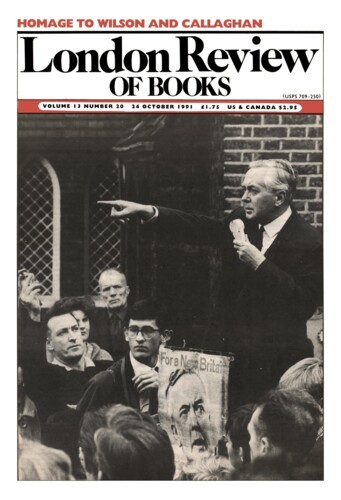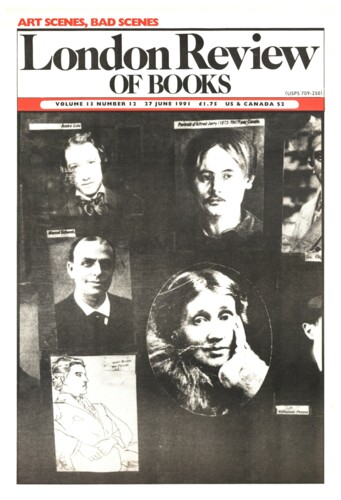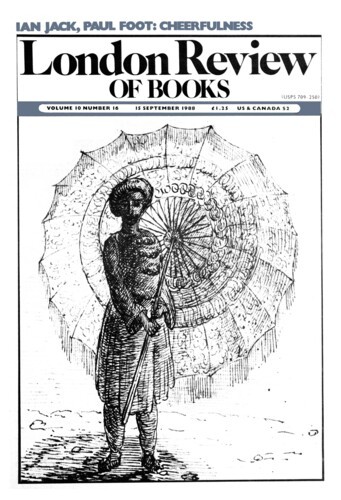A Very Athletic Person
T.J. Binyon, 26 May 1994
About half-way through Nabokov’s novel Pnin, the eponymous hero, Professor Timofey Pnin, who teaches Russian literature at Waindell College in New England, enters a sports shop and asks for a football (a present for his son). He is offered one:
